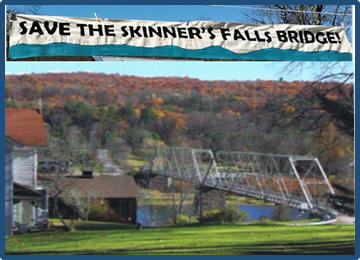Maryland to Ban Fracking!
March 29, 2017Important Win for Transparency in NYC Zoning Variances
June 2, 2017By InTheseTimes, April 4, 2017
In 2012, PA’s Act 13 made major changes to the rules governing the oil and gas industry.
In 2013, the PA Supreme Court declared unconstitutional the portion of the law that allowed the industry to overrule local zoning and therefore restored the right of municipalities to use zoning to control where gas and oil wells are allowed. This case about injection wells is a parallel situation and will likely go to the PA Supreme Court.
Read more about PA Act 13.
Fracking injection wells, which blast millions of gallons of water mixed with chemicals deep underground to expand fissures in the rock, have triggered earthquakes and polluted drinking water in several states. In order to prevent energy corporations from dumping toxic wastewater in their communities, two Pennsylvania townships drafted local constitutions banning the practice.
Providing another example of how far down the corporate rabbit hole state and federal governments have gone, on March 27 the Pennsylvania Department of Environmental Protection (DEP) — the state agency with the mission “to protect Pennsylvania’s air, land and water from pollution and to provide for the health and safety of its citizens” — sued these townships for interfering with the oil and gas industry.
The Pennsylvania Community Rights Network (PACRN) is a statewide, grassroots organization working to elevate community interests above corporate interests by advocating the right to local self-government. According to the group’s website:
The current structure of law in Pennsylvania systematically strips communities of the power to adopt laws to protect their health and safety, particularly when those laws come into direct conflict with corporate decision making. This system thus prohibits communities from banning projects and activities that they consider dangerous and harmful — everything from corporate factory farms to the land dumping of sewage sludge and “hydro-fracking” for natural gas. Unfortunately, Pennsylvania communities have found out the hard way that the existing structure does not provide a remedy for these problems, and that a corporate minority, with the blessing of the state, has almost wholesale control over our communities on almost any issue that really matters.
For 15 years, PACRN has been working alongside the Community Environmental Legal Defense Fund (CELDF) — a non-profit, public interest law firm that provides “free and affordable legal services to communities facing threats to their local environment, local agriculture, local economy and quality of life.” Thomas Linzey, a contributing writer to Rural America In These Times, is the executive director and co-founder of the Community Environmental Legal Defense Fund (CELDF) and serves as the organization’s chief legal counsel.
On March 29, CELDF issued the following press release:
Mercersburg, PA: On Monday, the Pennsylvania Department of Environmental Protection (DEP) issued permits to two polluting corporations. The permits signify the DEP’s approval of Seneca Resources and Pennsylvania General Energy (PGE) injecting toxic frack wastewater into Highland Township (Elk County) and Grant Township (Indiana County).
The permits are in direct violation of democratically-enacted Home Rule Charters in both Townships. The charters were drafted with the help of the Community Environmental Legal Defense Fund (CELDF). They established local constitutions that define not only government structure, but also rights and protections in the communities. Highland and Grant’s charters prohibit the depositing of frack waste as a violation of the communities’ rights to clean air and water. Residents adopted the measures because injection wells threaten drinking water supplies and have caused earthquakes in Ohio and Oklahoma, leading to their shut down.
On Monday, the DEP also sued both Townships, claiming the charters unlawfully interfere with state oil and gas policies.
Let’s be clear: our state agencies, tasked with “environmental protection,” are legalizing harmful activities by issuing permits to corporations with histories of violations. And, they are doing so against the will and sovereign law of the people who live in the community. Equally egregious, those state agencies are now suing communities who dare to stand up to unjust laws that privilege corporate interests above the communities’ health and safety. The meaning of “corporate-state” has never been more clear; it is painfully obvious whose interests our state agencies serve.
Grant Township Supervisor Stacy Long said, “Our community wrote a new constitution, with wide community support and input, to protect our rights and our environment. And now we’ve been sued, not only by a corporation that wants to profit by dumping toxic waste in our community, but also by our own state ‘environmental protection’ agency. Our fight continues, but we also hope that the latest shameful actions by the DEP inspire others to stand with us, and stand up in their own communities, against unchecked corporate and state power.”
CELDF is proud to continue standing with both communities to resist efforts by Seneca, PGE, and the DEP to violate the rights of the people of Highland and Grant Townships.
Part of a Larger Movement
Pennsylvania residents and their local representatives are advancing Community Rights as part of the broader Community Rights Movement building across the United States. Local communities and state Community Rights Networks are partnering with CELDF to advance fundamental democratic and environmental rights. They are working with CELDF to establish Community Rights and the Rights of Nature in law, and prohibit extraction, fracking, factory farming, water privatization, and other industrial activities as violations of those rights. Communities are joining together within and across states, working with CELDF to advance systemic change — recognizing our existing system of law and governance as inherently undemocratic and unsustainable.



